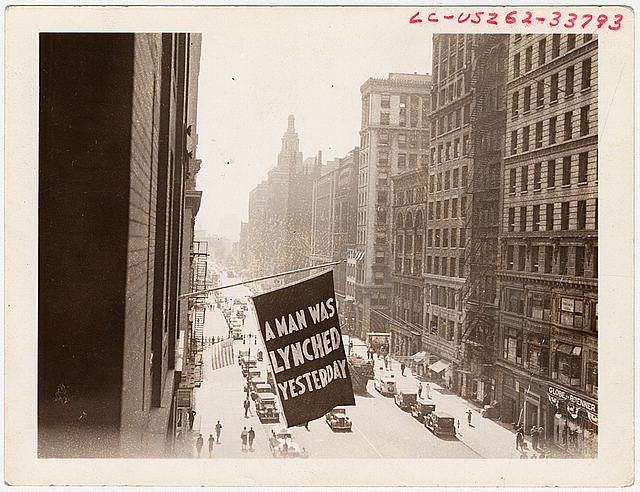
The lynchings of black Americans in the South after the Civil War were much more widespread than previously thought, according to a new report published Tuesday by the Equal Justice Initiative (EJI).
The report looks at the 3,959 victims of what the group call "racial terror lynchings" in the South, compiled after visiting 160 sites across the region and five years of research, The New York Times reports.
Researchers at EJI, a Montgomery, Alabama-based nonprofit, discovered 700 more lynchings than historians previously thought took place between the end of Reconstruction in 1877 and 1950.
"Lynchings in the American South were not isolated hate crimes committed by rogue vigilantes. Lynching was targeted racial violence at the core of a systematic campaign of terror perpetrated in furtherance of an unjust social order," the report states.
Some states were more notorious than others, but across the South people remained silent when it came to addressing or discussing lynching, the report says. EJI found that fear of interracial sex led to lynchings, which were often a response to "casual social transgressions," like insulting a white person, swearing or allegations involving a violent crime. Lynchings were also a catalyst for the migration of millions of black Americans from the South to the North.
Nearly a quarter of all lynchings were based on charges of sexual assault, but often an accusation of rape, or the simple act of knocking on a white woman's door, would suffice. Keith Bowen was lynched in Aberdeen, Mississippi, for "allegedly [trying] to enter a room where three white women were sitting," according to the report.
While Mississippi, Florida, Arkansas and Louisiana all had the highest rates of statewide lynchings per 100,000 people, Georgia, with 586 victims, and Mississippi, with 576, had the highest number of lynchings overall. Phillips County in Arkansas had 243 lynching victims, more than the entire state of Virginia.
Most of the victims were lynched without being accused of a crime, and many were killed after demanding their basic rights.
The report also finds that the violence of lynchings didn't end with the act of hanging. In many cases, large crowds would gather at the lynching, the press would show up, and food (such as deviled eggs and lemonade) and souvenirs (including the victim's body parts) would be sold. Burning and further mutilation of the bodies would then occur.
In 2013, the EJI placed three public markers in Montgomery, as most lynching victims were killed at sites now devoid of any identification. The group now plans to select more lynching sites to publicly mark and memorialize, which it hopes will "end the silence and inaction" and help with the recovery process.
Uncommon Knowledge
Newsweek is committed to challenging conventional wisdom and finding connections in the search for common ground.
Newsweek is committed to challenging conventional wisdom and finding connections in the search for common ground.
About the writer
Before joining Newsweek, Lucy Westcott was an editorial fellow at The Wire. Previously a United Nations correspondent for the Inter ... Read more





